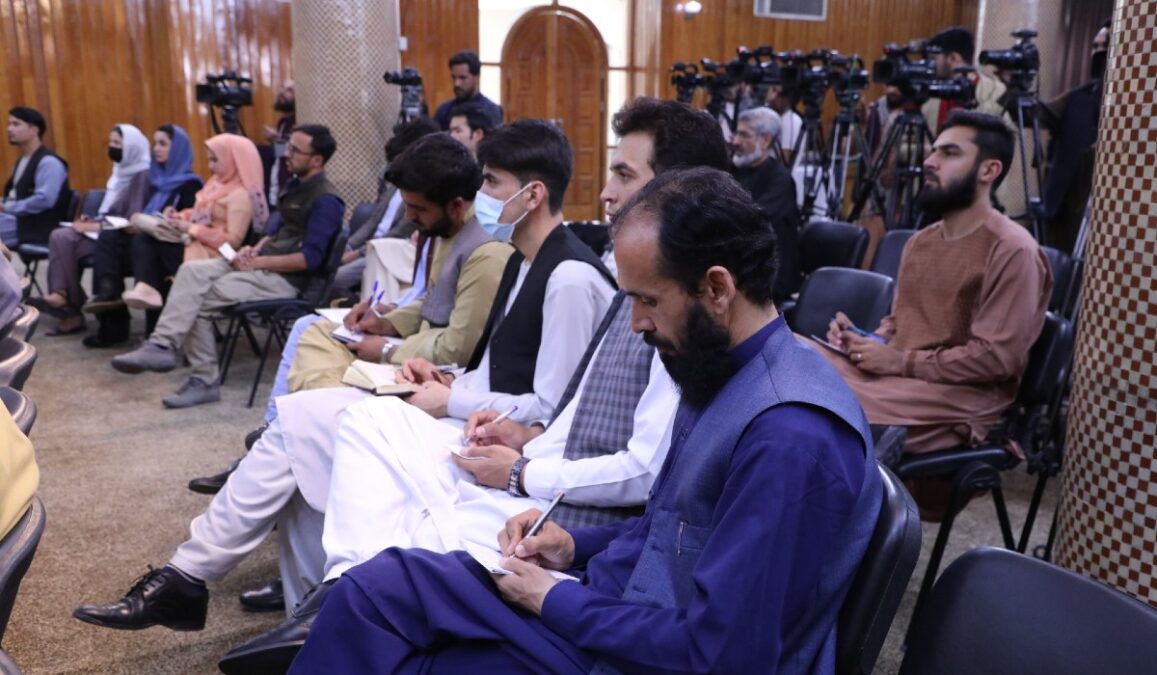Media repression under the two-year rule of the Taliban in Afghanistan has escalated, according to a statement by the Committee to Protect Journalists (CPJ).
The CPJ noted that despite promises to protect press freedom and women’s rights upon retaking control of Afghanistan in 2021, the Taliban’s actions have intensified and exacerbated media repression.
“Contrary to their earlier commitment, the Taliban have not only backtracked on their pledge but have also intensified their suppression of what used to be a vibrant media landscape,” the CPJ stated.
In the recent week alone, the CPJ documented instances where Taliban authorities detained two journalists, prohibited women’s voices from broadcasts in one province, and intelligence agents held three journalists in custody, alleging their association with exiled media outlets.
The organization emphasized that as the Taliban endeavors to end Afghanistan’s global isolation, the absence of credible and dependable news sources further isolates the country from the international community.
“The somber anniversary of Kabul’s fall serves as a reminder that the international community can and must pressure the Taliban to respect the Afghan people’s aspirations and enable the nation’s return to democratic processes, which includes safeguarding press freedom,” wrote CPJ Asia Program Coordinator Beh Lih Yi in an op-ed for Nikkei Asia.
At least nine journalists and media workers have lost their lives due to their professional engagements. The CPJ maintains a database of press-related attacks that allows for analysis of patterns and trends.
Responding to the recent detention of nine journalists by the Taliban across multiple provinces, the United Nations office in Afghanistan issued a statement on Thursday, emphasizing the paramount importance of upholding their rights.
UNAMA conveyed that within the past ten days, the Taliban have apprehended media personnel in six distinct provinces across Afghanistan. Furthermore, UNAMA highlighted the continued detention of journalist Mortaza Behboudi and girls’ education advocate Matiullah Wesa, both of whom were previously detained this year.
The UNAMA statement underscored the Taliban’s obligations under international law to honor, safeguard, and promote freedom of expression and opinion rights. Additionally, it underscored the necessity of ensuring detainees’ access to family, legal representation, and awareness of charges against them.
Among those held, Sayed Wahdatullah Abdali, affiliated with the Bakhtar news agency, was apprehended in Ghazni on August 6. Similarly, Habib Sarab, linked to the privately-owned Ariana News TV Network, was taken into custody by Taliban intelligence officials in Paktia province three days later. Journalist Haseeb Hassas, associated with the national news and entertainment radio station Salam Watandar, was arrested in Kunduz province the following day, as reported by Reporters Without Borders.





